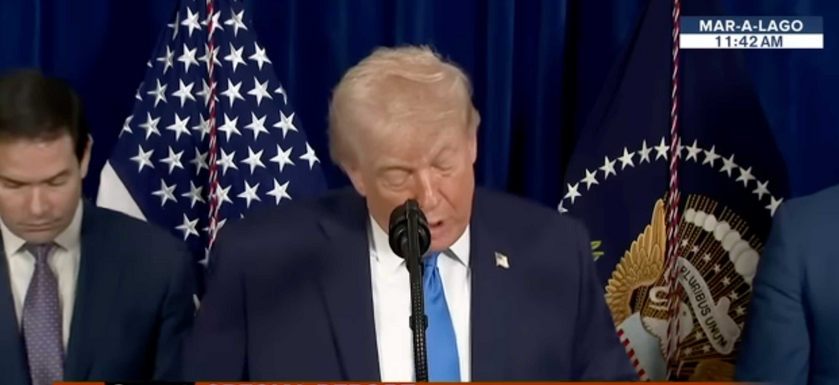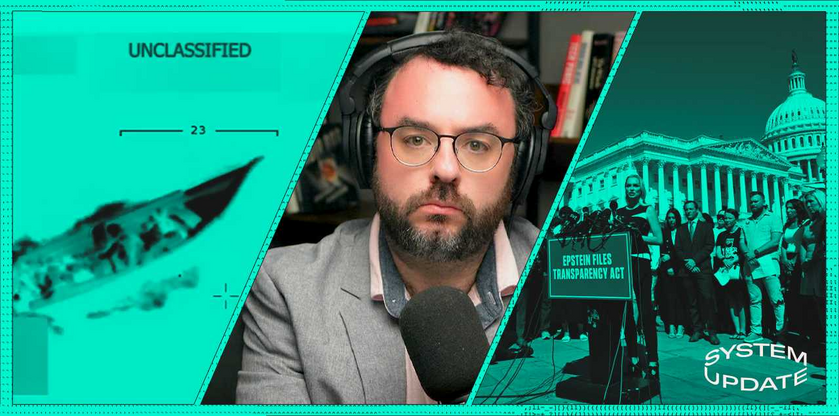Watch the full episode HERE
Good evening. It's Wednesday, November 6, the day after the 2024 presidential election.
Tonight: Donald Trump last night won the American presidency for the second time in a sweeping landslide. Trump won all seven of the so-called swing states. He is almost certainly likely to win more than 300 Electoral College votes. His lead in the popular vote over Kamala Harris is now almost 4 million, which would make him only the second Republican candidate this century to win the popular vote, the other being the wartime president, George W. Bush, in 2004. He also beat Kamala and her running mate, Tim Walz, in his home county in Minnesota. As striking as the massive margins are, is the breadth of demographic groups in which Trump made major strides since 2020. In fact, in virtually every demographic group other than college-educated women, Trump improved his vote totals from 2020 and 2016, chief among them among Latinos, but also Arab and Muslims, young people, and, by large distances, non-college-educated white men and white women. In other words, Trump, who has been branded by the national media virtually every day since 2015 as a racist, a white nationalist, a white supremacist fascist, owes his win in large part to the massive number of nonwhite voters who migrated from the Democratic Party toward Trump, starting in 2016 and into 2020 and even more so in 2024.
On top of that, the Republicans took control away from the Democrats of the Senate and appear likely – it's not certain, but it appears likely – that they will maintain control of the House as well. The biggest loser in all of this, besides the Democratic Party and their neocon allies such as Liz Cheney, is the corporate media to say that they are becoming more and more irrelevant at a rapid speed is to severely understate the case. They spent the last week of this campaign focusing on such towering issues as how a joke told by a comedian at a Trump rally enraged celebrities such as Bad Bunny and Jennifer Lopez, thereby, according to them, jeopardizing Trump's ability to attract Latino and especially Puerto Rican voters, as if that's the first thing on their mind when they go to vote. They spent 48 hours melting in contrived indignation over their false claim that Trump threatened Liz Cheney with execution by firing squad. I suppose we'll see whether that actually is scheduled shortly, whether it's on pay-per-view or whatever. But at least as of now, it was a completely fabricated allegation that they spent two or three days full days drowning in and that most of their time over the past two months has been screeching that Trump is the new Hitler coming to put all of them – these very important people in the media, the pundits and the various politicians – to come and put them all into camps.
None of that mattered in the slightest, and that is not only because corporate media is rapidly losing their audience to independent media outlets, podcasts and the like, but also because their lives are increasingly lived in a different universe than the millions of Americans on whose behalf they believe they speak. So many of them, these cable pundits and op-ed writers spent the day expressing pure bafflement – “I just can't understand why this happened. After everything we said about Trump, how can people go and vote for him in such large numbers” – while others spent the day blaming and heaping scorn not on the Democrats for losing, but on the voters for not doing what they were told. Particular scorn was reserved for Latino and Arab voters accused of being racist and misogynistic. Because, as we know, nothing enrages Democrats the more than one member of marginalized groups that they believe they own don't do as they're told. In sum, the leaders of the Democratic Party can never fail. They can only be failed by primitive, stupid, bigoted, and racist American voters who have a lot more to say about what is clearly a historical election. There is no figure like Trump in all of American history for multiple reasons and a bit later in the show, we are joined by the great, best creative journalist and my friend Lee Fang, who principally writes at his great Substack but is also a contributing writer for the British Journal Unheard.
For now, welcome to a new episode of System Update, starting right now.


















